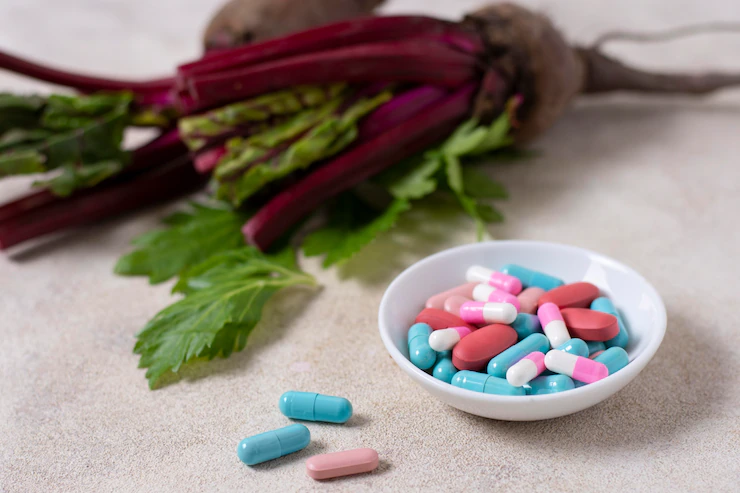What is Creatine: How Can You Get More of It In Your Diet?
Creatine is derived from the Greek word areas. It is an amino acid derivative present in almost all the cells in your body. However, it is mostly stored in muscle. If you work out or play sports, your body needs extra creatine for muscle growth and strength.
Creatine gives your cells a short recharge. It moves energy around the cell from where it is generated to the relevant areas,
How Much Creatine Can You Get From Your Diet?

Generally, your body needs one to three grams of creatine every day. You can get about half of it from your diet. Your body synthesizes the remaining half. You may need to take creatine supplements, especially if you are a vegan or vegetarian.
Creatine is mostly present in animal proteins. However, vegans and vegetarians can eat food combinations that offer the amino acids needed to produce creatine naturally.
Here are a few foods that can help you meet your required creatine intake:
- Red meat
- Chicken
- Tuna
- Cod
- Milk
- Eggs
- Pumpkin seeds
- Almonds
Taking a Creatine HMB Supplement
You may need to take this supplement if you don’t get enough of it from food. Transparent Labs creatine can be taken whenever you please, as long as you take it consistently every day. The goal is to ensure that your creatine store levels are always high.
It is also advisable to avoid taking creatine HMB supplements with caffeine. Studies suggest that caffeine can hinder creatine uptake. If you need your daily caffeine intake, take it a few hours before or after your supplement. Most people prefer to take creatine after their workout sessions.
Here are a few benefits of taking your creatine HMB supplements.
- lean mass increase
- total body hydration
- Reduced fatigue
- Improved alertness and cognition
- Repairing damage after injuries.
Why Do People Take Creatine Supplements?
The concentration of creatine in supplements is higher than in most foods.
If you are an athlete or you put a lot of strain on your muscles supplements may be a fantastic idea. They improve your muscle performance and repair damages after an injury.
The basic dosing regime for athletes is an initial dose of 0.3g for a kg of body weight per day. If you weigh 50kg, for example, you would need 15g of creation every day for a week.
After that, your ongoing dose should be 0.075g per kg. Once your body reaches the threshold of creatine that it can absorb, the excess will be passed out in the urine. Creatine is excellent for brain function as well. It can promote alertness and concentration.
Some studies claim that it could be great for treating mild symptoms of depression. There is minimal research about the use of creatine supplements in expectant mothers, children, and adolescents. Therefore, it would be wise to avoid them.
If you have pre-existing kidney conditions, speak with your doctor before taking the supplements. If you aren’t very physically active and eat a balanced diet, there is no need to take supplements.
Creatine Deficiency Syndromes

If your body doesn’t receive sufficient creatine, you may suffer the following syndromes:
- Osteoarthritis
- Depression
- Chronic obstructive pulmonary disease
- Diabetes
- Fibromyalgia
- Parkinson’s disease
Oral supplements may relieve the symptoms of these syndromes. In conclusion, creation is present in plenty of foods. It occurs naturally in fish and red meat. Your body produces the remaining amount.
Healthy creatinine levels promote athletic performance, improve muscle mass, and improve brain function.
Taking creatine supplements is a great idea if you are an athlete or take part in strenuous physical activities. However, it would be best to speak with a doctor before taking it. Children and pregnant women should not take creatine supplements.
Read Also:
- 8 Effective Ways to Get the Best Workout Results
- How To Create The Perfect Workout Routine For You
- What to Eat or Drink on Workout Day
- Why Runners Should Consider A Pre-Workout Supplement



